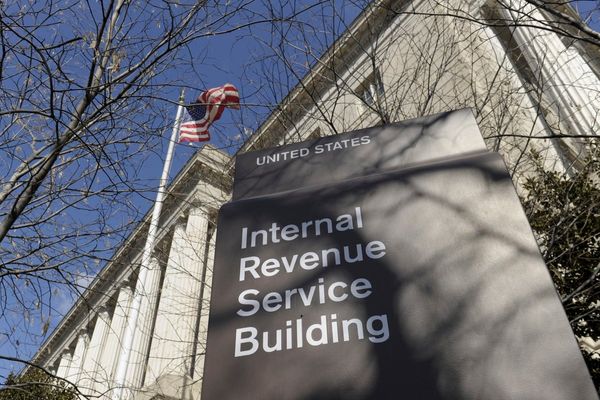It’s the right time to cut taxes to grow the economy, according to Prime Minister Rishi Sunak. Both he and the chancellor have been discussing the “path to reducing the tax burden” in recent days.
The government is set to make its autumn statement on its financial plans this week. With the UK tax burden at levels not seen since the 1940s, Conservative party members have been increasingly calling for cuts ahead of the next general election.
Autumn statements aren’t always used to make major fiscal policy announcements. Last year’s statement provided an opportunity for a mini-budget and a raft of policy changes. But that was after the disastrous market reaction to the package of unfunded tax cuts announced in September 2023 by Hunt’s predecessor Kwasi Kwarteng.
This year, among expectations of personal finance issues such as savings and pensions, the prospect of tax cuts has suddenly become a strong possibility. The chancellor has some unexpected “fiscal headroom” following more favourable inflation figures recently, and so it seems the government feels ready to announce tax changes sooner rather than later.
But given the government’s recent history of flip-flopping when it comes to business taxes, this week’s statement could provide the chance to take a firm stand in this area before the next general election.
Extending ‘full expensing’
The Annual Investment Allowance (AIA), and the threshold at which it’s charged, changed many times during the 2010s before settling at £1 million in 2020. This means companies can spend on new equipment and other capital costs up to this amount and deduct it from taxable profits each year. Before that, only a certain amount of capital spending could be fully claimed as a taxable allowance in the year of purchase.
When the government introduced full expensing in March 2023, it meant qualifying capital expenditures – including plant and machinery that would usually qualify for the “main rate” capital allowance of 18% – of any amount could be claimed in full as an allowance.
Full expensing was introduced as a way to encourage capital investment, and no doubt to soften the blow caused by a sharp increase in the rate of corporation tax. It’s due to end in March 2026, but there is growing speculation that it could either be extended by one or two years, or become permanent.
This would be welcomed by businesses. It would be an opportunity to gain immediate tax savings from investments, rather than as a trickle over the years an asset is in use. It would also provide some stability, helping companies to plan. This hasn’t been easy in recent years when the government was constantly changing the AIA limit.
This seems like an unlikely vote-winner however, given that an extension to an existing allowance isn’t as instantly alluring as something like a new tax cut or increases to personal thresholds.
It also raises questions around what will happen after the next general election: if Labour forms the new government (as recent polling suggests could happen) would it be tempted to reverse this policy? It’s possible that Jeremy Hunt is thinking this could create a “wedge” issue that could draw away potential voters for any incoming Labour government that wants to appeal to business.
Since the chancellor has already pledged to avoid any measures that could cause inflation, permanent full expensing could be the most businesses can hope for this autumn.

Changing corporation tax
One of the more startling elements of the Conservative government’s fiscal policy in recent years has been its change to the rate of corporation tax. This is the tax that all incorporated companies in the UK pay on their taxable profit, before dividends can be distributed to shareholders.
In 2010, George Osborne became the first Conservative chancellor for 13 years, and he set about significantly reducing the headline corporation tax rate from 28% to 20% in 2016, followed by a further rate cut to 19% in 2017.
In his 2021 budget, Rishi Sunak, appointed chancellor in 2020, made two significant announcements about this tax. First, that the main corporation tax rate would increase to 25% from April 2023. And while the short-lived Liz Truss-led government had planned to cancel this increase, it came to pass in 2023, as planned, after Jeremy Hunt took over as chancellor.
Read more: Corporation tax U-turn: why the latest change means more uncertainty for UK business
Second, Sunak re-introduced a “small profits” tax rate, where companies that have annual taxable profits below £50,000 only incur a 19% corporation tax. Higher profits are taxed at a marginal rate of 26.5%, creating a tapered effect – that is, that a company’s effective tax rate would gradually increase if their profits also grow. The marginal rate exists for any profits up to £250,000 – any higher and everything incurs the 25% rate.
The government initially justified the corporation tax increase as a way to mitigate the loss of government revenue during COVID. But Truss and Kwarteng’s attempt to reverse the tax emphasised that increasing it is viewed by some in Conservative circles as a betrayal of the party’s low-tax philosophy.
Hunt may use the autumn statement for other measures that could gain broader voter support, but keeping the corporation tax rate the same will probably continue to frustrate MPs on the right of the Conservative party.
Gavin Midgley does not work for, consult, own shares in or receive funding from any company or organisation that would benefit from this article, and has disclosed no relevant affiliations beyond their academic appointment.
This article was originally published on The Conversation. Read the original article.







